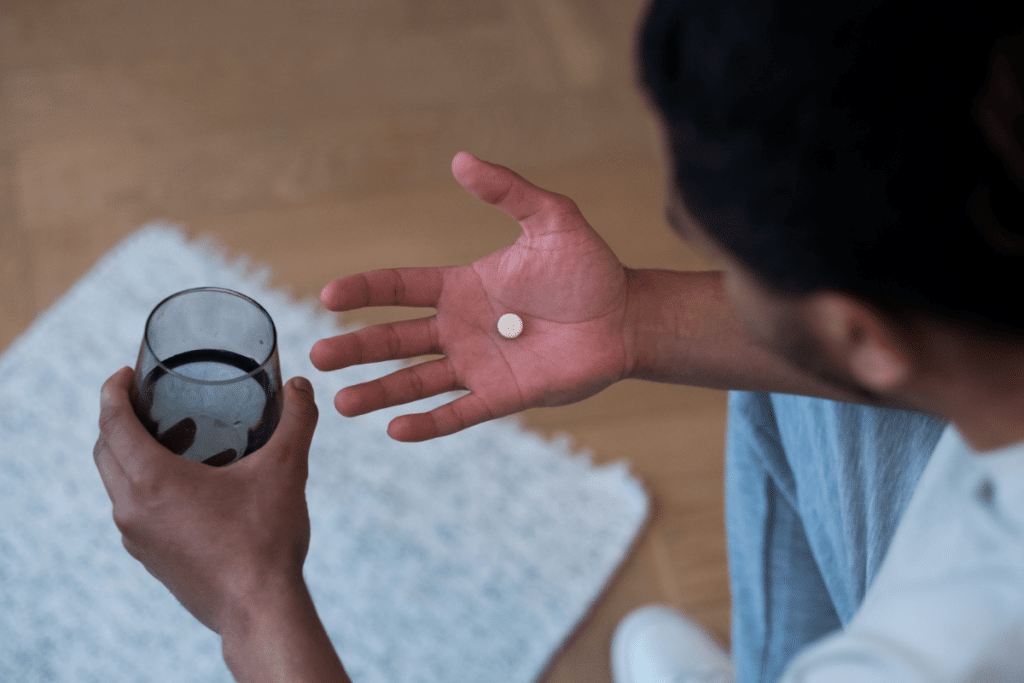Medically Reviewed by Dr. Bryon McQuirt
February 6, 2025
Last Updated:
February 6, 2025
Hydrocodone, also prescribed as Lortab or Vicodin, is one of the most frequently prescribed opioids in the U.S., and has severe potential for misuse and addicion.
Many ask, “how long does hydrocodone stay in my system?”
If you’re taking If you’re struggling with hydrocodone use, understanding how this medication affects your body is crucial for recovery. Let’s explore what hydrocodone is, how it works, and most importantly, how long it stays in your system.
Learn more about our Georgia detox programs.
Hydrocodone is a powerful prescription opioid painkiller used to treat moderate to severe pain. It’s often combined with acetaminophen (Vicodin, Norco) or ibuprofen for enhanced pain relief. While effective for pain management, hydrocodone carries a significant risk of dependence and addiction.
Hydrocodone binds to opioid receptors in the brain and nervous system, blocking pain signals and triggering dopamine release.
This creates both pain relief and feelings of euphoria, which contributes to hydrocodone’s addictive potential.
The drug affects multiple body systems, including:
The duration hydrocodone remains detectable varies by testing method:
Several factors influence detection time:
Hydrocodone withdrawal occurs when someone who has developed physical dependence stops or significantly reduces their use.
Hydrocodone withdrawal can be both physically and psychologically challenging, but understanding what to expect can help prepare you for the journey ahead.
Early Symptoms (6-12 hours after last dose):
Peak Symptoms (24-72 hours):
Post-Acute Symptoms (1-2 weeks):

Sobriety from hydrocodone withdrawal requires a comprehensive treatment approach tailored to your specific needs.
Recovery success rates increase significantly when proper medical supervision and support are provided throughout the withdrawal process.
At Peachtree Detox, we offer several evidence-based treatment options designed to address both the physical and psychological aspects of addiction:
Medically-assisted detox provides 24/7 medical supervision during withdrawal.
Medical staff monitor vital signs and manage symptoms with appropriate medications, ensuring safety and comfort throughout the process. This structured environment removes access to substances and provides immediate medical intervention if needed.
Following detox, inpatient rehab offers intensive treatment in a residential setting. Programs typically last 30-90 days and include:
Dual diagnosis treatment addresses both addiction and co-occurring mental health conditions simultaneously. Treatment includes:
Understanding how long hydrocodone stays in your system can be just the beginning of your journey.
At Peachtree Detox, our experienced medical team provides comprehensive, personalized opioid detox to help you safely navigate withdrawal and begin your recovery journey.
Contact us today to speak with our admission specialists. We’re available 24/7 to answer your questions and help you start your path to lasting recovery. Insurance verification and confidential consultations are always free.